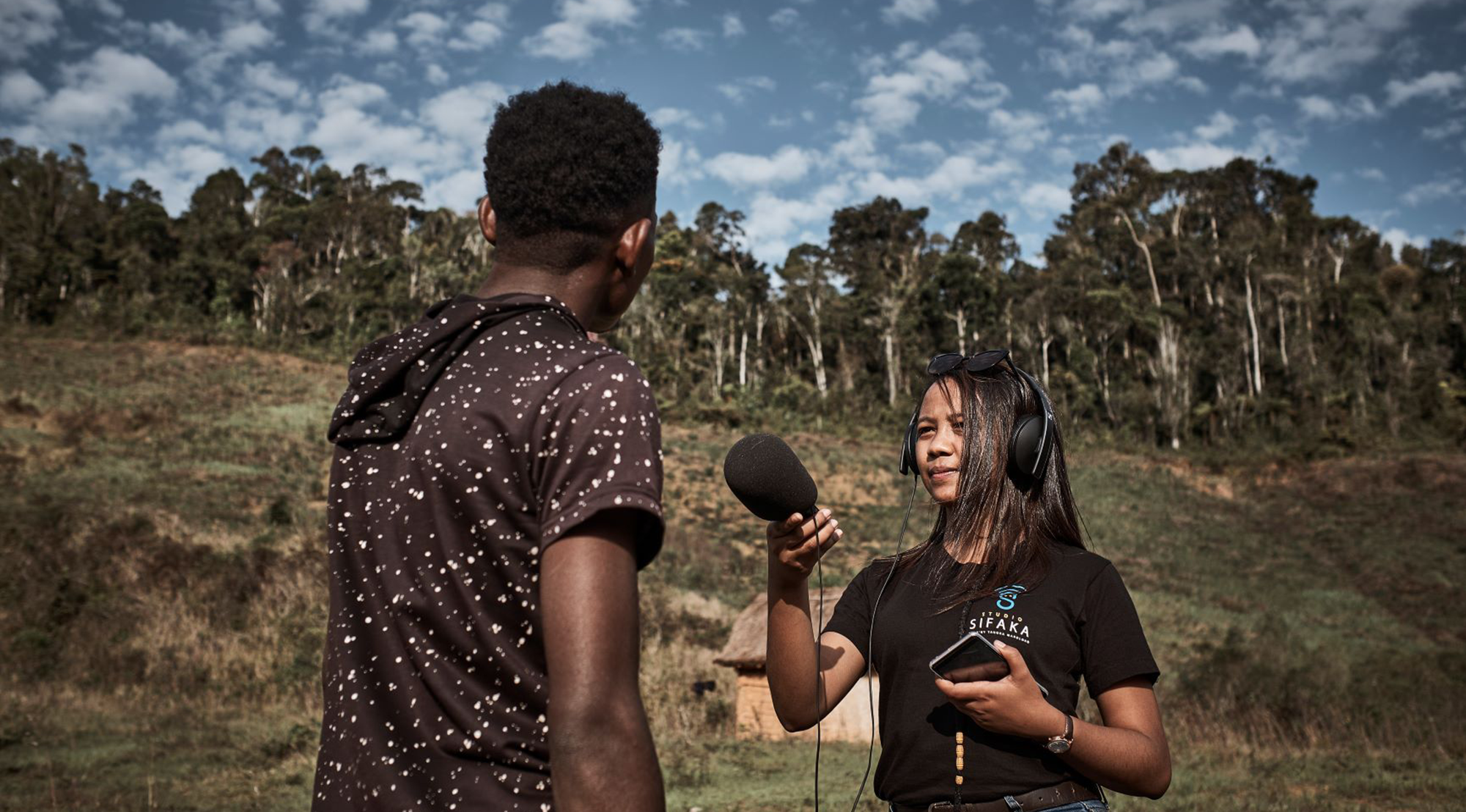Created in 2019 by Fondation Hirondelle in partnership with the United Nations, Studio Sifaka is a radio program aimed at young Malagasy to provide access to useful and reliable information and to allow them to make their voices heard peacefully.
Studio Sifaka has been producing a 2-hour daily radio program since December 2019. It is broadcasted by a network of 24 local radio partners, covering nearly 50% of the total population of Madagascar. Content includes a national and regional newscast as well as programs dedicated to practical advice (health, employment, etc.), dialogue, music, and Malagasy culture. They are produced by a team of young Malagasy journalists, trained and supported by Fondation Hirondelle. This year, it is planned that Studio Sifaka will become a 100% Malagasy entity, supported by Fondation Hirondelle and UNDP.
In 2020, a survey was conducted to measure the audience for Studio Sifaka’s programs and their impact on the population, particularly young people. It was led by the Kantar Institute, a renowned international polling institute. The study indicates that Studio Sifaka’s programs are listened to each week by 4.3% of the population covered by all the partner radios and that about 320,400 people aged 15+ regularly listen to them. An encouraging result after less than a year of broadcasting (at the time of the study). The construction of a regular audience indeed takes several years for a new media outlet. And Studio Sifaka is primarily aimed at young people, often neglected by the country’s mainstream media.
90% of these regular listeners are between 15 and 34 years old. The intended target audience, young people, is thus clearly reached. «I realized that some of my friends did not listen to the radio before, but now they are always there, at the same time, to listen to Studio Sifaka’s programs», said a listener of Studio Sifaka in the rural commune of Vohipeno. « It’s like a meeting place for us, and we get together to listen and comment on what they say on the radio. And sometimes, the discussions go on afterward. There’s so much content and new things we learn every day that open our eyes.»
Another source of satisfaction is that Studio Sifaka’s audience is predominantly female, with 57% female listeners compared to 43% male. A result that is all the more remarkable given that most media, and in particular news media, generally have a predominantly male audience, in Africa and elsewhere around the world. «As a young woman, I now know what harassment and gender-based violence are», said a female listener in the city of Sambava, on the northeast coast of the island. «I know what to do and where to go if I or someone I know is a victim.»
74% of Studio Sifaka listeners consider its programs “useful” or “indispensable” in their daily lives. The information provided by Sifaka is considered “reliable” by 82% of the listeners, who also believe (78%) that the programs are balanced, impartial, and give voice to different points of view. Listening to Studio Sifaka programs has already led 60% of listeners to change their behavior and 68% to share information with others. “We hear too often about ethnic discrimination in our country. There are the coastal people, and there are the merina. This kind of discourse often leads to conflicts. But when you listen to the programs of Studio Sifaka, I have the impression that this categorization does not exist. I hear different voices and dialects every time, and it makes for a very harmonious radio experience. It changes our relationship with young people who are not from the region,” said a listener in Sambava, on the northeast coast of Madagascar.


